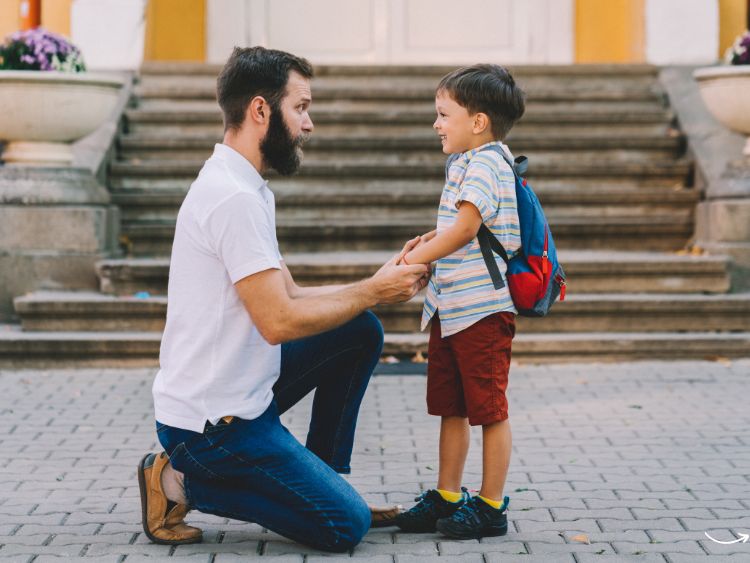What Does “Baby Daddy” Really Mean?
“Baby daddy” is a term you’ve probably heard thrown around in casual conversation or seen plastered across social media. But what does it actually mean? Simply put, a baby daddy refers to a biological father of a child, especially when the father isn’t married to or in a committed relationship with the child’s mother. The term has evolved over time, carrying both lighthearted and serious connotations depending on the context.
Whether it’s a playful nod to unconventional family dynamics or a critical look at absent fatherhood, the phrase holds more weight than you might think. So, let’s dive deeper into what makes this term tick and why it’s become such a cultural buzzword.
The Origin of the Term
The phrase “baby daddy” finds its roots in African-American Vernacular English (AAVE). Initially used within specific communities, it gained traction in mainstream media in the early 2000s. Songs, TV shows, and social media platforms played a significant role in catapulting the term into everyday conversations.
- From Slang to Common Use: Once seen as slang, “baby daddy” is now widely understood and used across various demographics.
- Pop Culture Influence: Movies and hit songs like “Baby Daddy” by B-Rock and The Bizz made the term both relatable and catchy.
Types of Baby Daddy Relationships
Not all “baby daddy” scenarios are created equal. The dynamics vary based on personal relationships, parenting styles, and cultural expectations. Here are some common types:
- The Supportive Partner:
A baby daddy who actively participates in co-parenting, showing up for the child emotionally and financially.- Prioritizes the child’s well-being.
- Maintains a respectful relationship with the mother.
- The Absent Father:
Unfortunately, this type of baby daddy is less involved or entirely absent.- May struggle with personal or financial challenges.
- Often criticized in media portrayals.
- The On-and-Off Communicator:
This father oscillates between active involvement and sporadic contact.- Struggles to maintain consistency.
- Can lead to confusion for the child.
- The Best Friend Baby Daddy:
Some fathers maintain a close, platonic friendship with the mother, forming a strong co-parenting team.- Often celebrated as a modern parenting success story.
- Keeps drama to a minimum.
The Impact on Family Dynamics
Having a baby daddy in the picture—or not—shapes family dynamics in distinct ways. While every family is unique, common themes emerge:
Pros:
- Co-Parenting Benefits: When done right, co-parenting fosters emotional stability for the child.
- Financial Support: An involved baby daddy can ease financial pressures on the mother.
- Role Modeling: Positive fatherly influence contributes to the child’s development.
Cons:
- Emotional Tension: Poor communication or unresolved conflicts can create a toxic environment.
- Inconsistency: Sporadic involvement can confuse and hurt the child.
- Financial Strain: When a baby daddy isn’t contributing, the mother often bears the entire burden.
How Society Views Baby Daddies
The societal lens on “baby daddies” is often tinted with judgment, humor, or both. On one hand, memes and jokes poke fun at the concept. On the other, the term carries deeper implications about fatherhood and responsibility.
- The Stereotypes: Baby daddies are sometimes unfairly labeled as irresponsible or immature.
- The Reality: Many fathers break the mold, proving they can be loving, dependable, and engaged parents.
Tips for Successful Co-Parenting
Navigating co-parenting with a baby daddy isn’t always a walk in the park. Here are some tips to make the journey smoother:
- Communicate Clearly: Set boundaries and expectations early on.
- Focus on the Child: Keep the child’s needs at the forefront of every decision.
- Stay Respectful: Avoid unnecessary conflicts, especially in front of the child.
- Be Flexible: Life happens—adaptability goes a long way in co-parenting.
- Celebrate Wins: Small victories, like shared milestones, can strengthen your co-parenting relationship.
FAQs About Baby Daddies
What’s the difference between a baby daddy and a father?
A baby daddy refers to the biological father of a child, often when the parents aren’t in a committed relationship. A “father” implies an active role in the child’s life, going beyond biology.
Can baby daddies and baby mamas have healthy relationships?
Absolutely! Many co-parents maintain strong, respectful relationships focused on their child’s well-being.
Why is the term “baby daddy” controversial?
Some people find the term dismissive or loaded with stereotypes, while others embrace it as a playful expression of modern parenting.
Conclusion
“Baby daddy” is more than just a phrase—it’s a reflection of evolving family structures and modern parenting dynamics. Whether you’re navigating co-parenting challenges or simply curious about the term’s cultural significance, understanding the nuances can help foster better relationships and reduce judgment.

